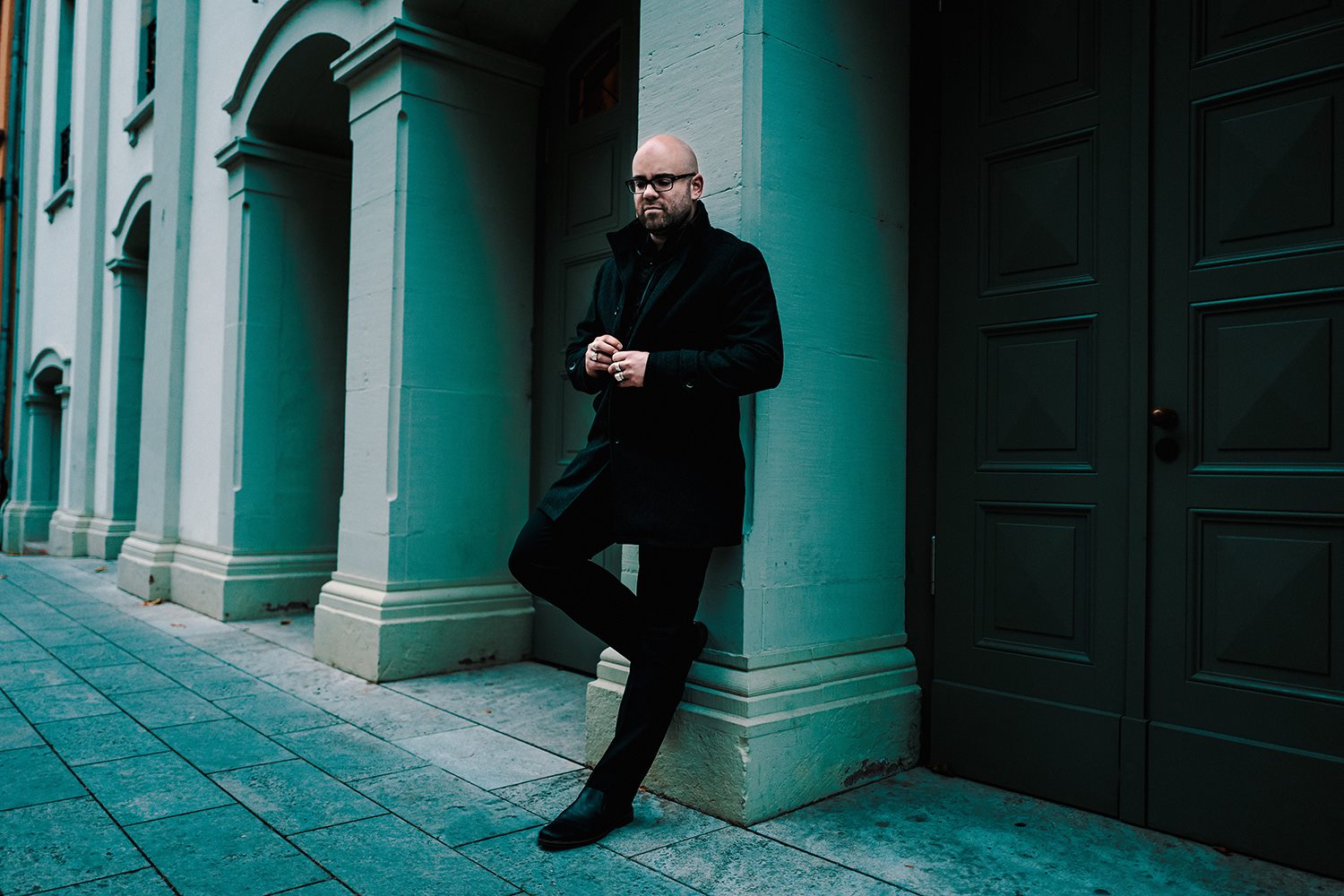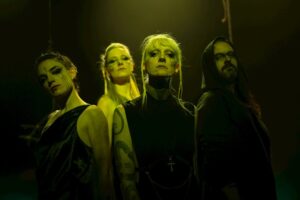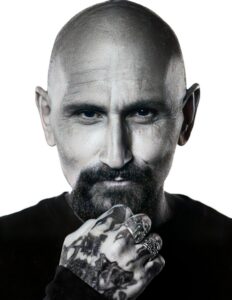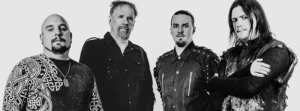ROME – Modern Folk With Dark Attitude

Interview with Jerome
1. Hello Jerome, what is the current line up of the band for studio and live performances?
In the studio I basically work alone. It’s just me and the engineer, really. But I pick my engineers carefully, because they usually contribute a lot of sound and arrangement ideas. But I only employ other musicians if there’s some instrument I want on the recording, that I can’t play myself. The live set-up is different. There I have friends along for the ride. These days we try to keep it to a minimum, so there’s only about three of us on stage at any given time.
2. How do you position the band in terms of musical influences and music genre?
It’s basically folk music. But it’s a darker, contemporary kind in a way. It’s mostly rooted in the neofolk-industrial avantgardish kind of underground that started in the 80s in England. We combined that with a more alternative, singer-songwriter vibe. There’s still partially punky, cold-wavish stuff in there too, with a splash of chanson here and there, perhaps.
3. What are the advantages and disadvantages of being the main songwriter of the band?
I’m the boss. There’s no disadvantages, really.
4. Do you accept the label of a political band?
Not really, no. We are not a political band. Political bands have an agenda, a specific ideology they want to push. Like Crass or Chumbawamba, or Fugazi. We’re not like that. We don’t promote any ideology, but we are indeed interested in ideas, and we attract people who are interested in ideas. Generally speaking, a lot of the stuff ends up being very political, and I’m not gonna try and deny that. It’s simply because I am interested in politics and culture and philosophy…so the music (I mean the lyrics) might end in politics to some degree for sure. But that doesn’t make the band “political”. We’re into dialogue, not propaganda. I guess we are kind of similar to New Model Army in that regard. It’s obvious where they are coming from – if you know them. But some of those songs are quite intriguing. Certainly at first. And they did have some songs that raised a few eyebrows in the early days because people couldn’t quite grasp where they stood. I like that a lot. I think music should be challenging in that regard.
6. You have been recording since the late 2000s, how do you progressively improve your recording and performing style through the years?
I’m not sure I’m even improving. I just keep moving. I work with different people all the time, so that keeps you on your toes. I’ve actually been recording since the late 90s to be fair. A lot has changed indeed, but as far as me as the songwriter guy is concerned, I still work in the same way. I must say that the work in the studio was what attracted me more to this profession than the idea of being on stage. I liked that part too, but the studio work was really what I fell in love with. Even before I first set foot in one. I remember seeing these videos on TV, of bands working in the studio. And I just found it extremely fascinating to see how these things you listen to every day come into being. But I never was a nerd when it comes to the technicalities and gear and all that. I just wanted to get stuff done.
7. You have a loyal fanbase here in Greece, do you have any memories of your concerts here?
Sure, lots of good memories from our shows in Athens. It’s been a while now, so I guess we should come back soon!
8. Can you describe us the process of composing and recording your new album?
It wasn’t any different from what I usually do: I assemble ideas and then at some point I book some time at the studio I work with. The part where I assemble ideas doesn’t happen at the same place all the time. The travels I do help a lot with finding inspiration. This one was mostly written or conceived in Italy, for example.
9. What is the meaning behind the title of your album “Le Ceneri Di Heliodoro”?
I wouldn’t dare to answer that. I like leaving some mystery to what I do and I am not in the business of dissecting my work.
10. Would you like to comment on the artwork of your new album?
Well, I picked it, so I must have liked it, I guess. I let other people do the commentary.
11. What is the concept behind the lyrics of your new album?
It’s very much concerned with the situation this new modern age puts us in. The songs just came to me. They imposed themselves pretty much. So I just gathered them up and found this (Italian) context for them.
Taken from the new album “Le Ceneri Di Heliodoro”
12. How do you adjust yourself to the new model of the music industry, including music streaming and digital only distribution of the music?
Well, it is what it is. I let the label worry about that, really. The business still keeps changing. It seems the worst is over and people have reconciled to the fact that there’s no more real money in music, but the show must go on.
13. Do you feel that the vinyl could save the physical musical products?
Financially, no. Of course not. But it can save the idea of the album as such. There will always be people who prefer to touch the things they love, rather than look at them on a screen. So that will keep us going just a little longer now, I hope.
Information:
www.rome.lu
www.facebook.com/romeproject


